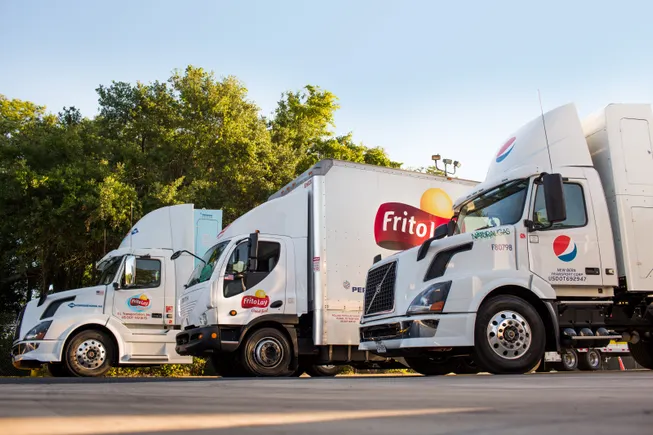Many businesses face challenges in determining which AI projects to pursue and often find themselves stuck in pilot phases. A well-defined strategy can guide technology leaders in navigating this complex landscape.
PepsiCo is making progress in prioritizing projects as the pressure mounts to deliver results, as noted by Athina Kanioura, EVP and Chief Strategy and Transformation Officer at the company.
“There is no one-size-fits-all rule,” Kanioura shared with CIO Dive. “Our approach, which has proven successful, involves allowing room for experimentation while maintaining a focused agenda on enterprise-wide generative AI capabilities that are essential for the company’s future.”
This balanced approach fosters innovation and employee engagement without spreading resources too thin or getting bogged down by numerous pilot projects.
“We do not want to stifle innovation, but we also aim to achieve significant ROI on our investments in key areas,” Kanioura emphasized.
To facilitate experimentation and testing of tools, the food and beverage giant has set up an internal sandbox named PepGenX, integrated with Amazon Bedrock as part of PepsiCo’s extended partnership with AWS.
While many companies initially explored various generative AI applications through hackathons and idea solicitations, the focus has since shifted to sifting through use cases that align closely with broader business objectives—a challenging endeavor according to a Snowflake survey that highlights the difficulty in selecting the right use cases based on factors like cost, business impact, and feasibility.
As organizations grapple with the challenge of moving AI initiatives beyond pilot stages, PepsiCo’s strategic focus has helped them maintain momentum.
“We have identified four or five key initiatives that guide our investments and align our teams,” noted Kanioura.
This includes leveraging AI to enhance innovation and workforce management, with generative AI integrated into the product lifecycle management process to streamline information management for new product launches.
“Imagine a vast amount of structured and unstructured data,” Kanioura explained. “We have significantly reduced the timeline for these processes from months to just a few months.”
PepsiCo has also utilized AI technology to streamline access to information for employees, from insurance details to technical support, resulting in improved efficiency and user experience.
“This has brought critical information closer to our employees without requiring a complete overhaul,” Kanioura highlighted. “The successful North American launch has paved the way for further global expansion.”
Monitoring the progress of key initiatives against set KPIs, Kanioura emphasized the role of the internal sandbox in achieving broader organizational goals.
“The sandbox serves as a platform for technology familiarization,” Kanioura noted. “It’s not just about experimentation; it’s about understanding the value and becoming an advocate for the technology.”
Moving Forward with AI Agents
As businesses approach the latter half of the year, many are exploring the efficiency gains offered by AI agents. PepsiCo is investing in AI agents following significant progress in digital transformation, cloud, and data initiatives.
“Investing in foundational elements, particularly data infrastructure, is crucial,” Kanioura emphasized.
Some companies are realizing the importance of this aspect through experience.
Less than 40% of executives have successfully deployed generative AI tools at scale, with only 13% believing that these technologies have delivered significant value, attributing data readiness as a primary challenge, as highlighted in an Accenture report released in March. Data challenges can hinder progress, delay projects, and escalate costs.
PepsiCo’s journey in digital transformation has heavily relied on a cloud-first approach, positioning the company’s data strategy for success.
“Without the foundational changes and strategic moves, our foray into AI agents would have been impossible,” Kanioura noted.
Although still in the early stages, PepsiCo is exploring how AI agents can enhance both employee and customer experiences, with collaborations playing a pivotal role in this exploration.
“Our internal team cannot build everything, nor should they,” Kanioura stated. “I believe in striking the right balance between buying and building. Investing in what’s readily available and building what provides a competitive edge.”
PepsiCo follows a rigorous vendor selection process, engaging with multiple potential partners before making decisions. The company evaluates vendors based on their roadmap, industry understanding, capabilities, among other factors.
“I look for a genuine commitment from vendors,” Kanioura emphasized.
The ability to collaborate with vendors who allow customization is a key factor for PepsiCo.
“We do not seek entirely bespoke solutions,” Kanioura clarified. “We avoid extreme outsourcing and believe in taking ownership of our destiny. Having a strong internal technology team comprising software engineers, architects, data experts, AI and ML specialists, and operations professionals is crucial for our success.”

